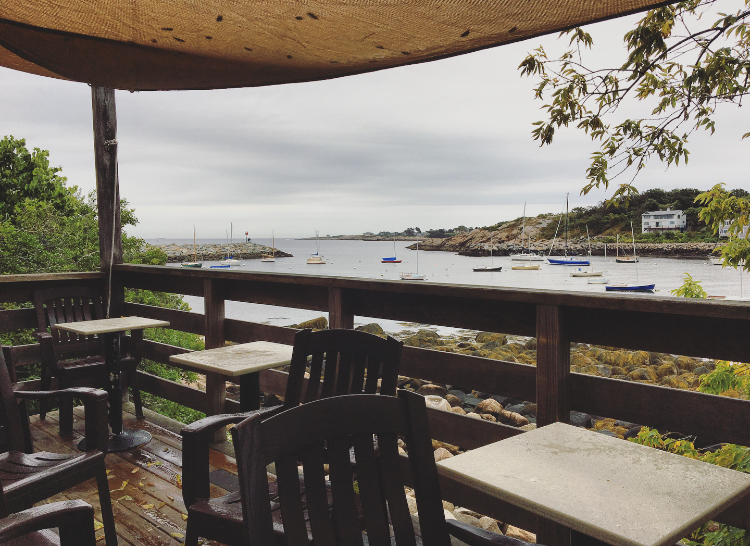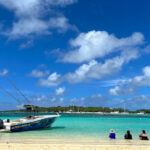
(TAN): Once the storm named coronavirus has passed and we gradually start emerging from quarantine, the world as we know it would have changed from what it was before we locked our doors from the inside last month.
Whether bidding adieu to bad habits, adopting new skills, losing a loved one to the pandemic, or just being plain lucky in avoiding a tragedy, our perspectives are likely to shift, with or without us knowing. It will, in turn, have far-reaching effects on our socio-economic behaviours, and help redefine the role of entire industries.
The travel industry, that contributes to 10.4% of global GDP and has outpaced the growth of the global economy, is among the hardest hit of all economic sectors. It will possibly experience a sea change too – in customer demands, and operations of transport and accommodation facilities after the crisis is over.
Meanwhile, the United Nations World Tourism Organization said international tourist arrivals could go down 20% to 30% in 2020 when compared with 2019 numbers, translating into a drop in international tourism receipts for exports between USD 300 to USD 450 billion. The decline, nearly a third of the USD 1.5 trillion generated in 2019, will push growth in the sector back by five to seven years.
On the other hand, the World Travel & Tourism Council said the pandemic could put up to 75 million travel-related jobs at immediate risk, thereby leading to a global GDP loss of up to USD 2.1 trillion in 2020.
Although the overwhelming scale of the outbreak has left everyone gasping, experts believe the travel industry will bounce back as it has from past crises, though the way we travel will change forever.
And while it is too early to guess how these changes will exactly play out, these are some of the ways in which travel could be different in the post-COVID times.
Flyers may look for emptier planes
After getting used to the idea of social distancing, passengers might want more space while travelling by air – they will reportedly feel safer flying in aircraft that are less crowded.
Several airlines including United States-based carriers such as Alaska, Delta and Spirit have temporarily stopped booking middle seats, while American Airlines is blocking off half of its middle seats, reports said. Swiss airline EasyJet, on the other hand, will keep the middle seats vacant once travel restrictions are lifted, as per reports.
Such a step would be deemed suicidal for airlines in normal times, but with few people flying and the need to physically distance those who are, currently it is considered a crucial measure to further the cause of public health.
Another aspect that might need to be looked at is the line at airports – from check-in to security and boarding, flyers have to pass through serpentine lines, which after being used to standing six feet apart from strangers might come across as unsafe.
Cleanliness will become a relentless factor
Emptier planes alone might not make the cut in the post-COVID era. Flyers will also look for a hygienic environment inside the aircraft and on ground. Airlines will have to ramp up their cleanliness quotient, and even use it as a competitive move to attract customers.
Delta has already introduced its “Delta Clean” effort, by which it pledges to deliver “elevated cleaning measures for the long term”.
“The highest levels of clean should not be reserved for times of crisis – customers deserve to feel confident and safe whenever they decide to travel. That’s why we are extending our overall safety focus to include our new standard of clean,” Delta’s Chief Customer Experience Officer Bill Lentsch said.
Airlines will also have to rethink how they serve food and beverage on board in the wake of flyers’ apprehensions about touching surfaces that are already contaminated. While American airline Southwest is reportedly suspending its usual beverage service and instead offering just snacks and water, Delta Air Lines is also adjusting its food and drinks service in flight and in clubs. Delta will serve food in “pre-packaged, non-perishable Flight Fuel boxes”, beverage will include just individual bottled water, with no plastic cups or ice, and temporarily discontinue hot towel service.
Hotels and restaurants will face the same challenge – tourists will probably feel safer in boutique resorts and less crowded accommodations. Hotels would be at a more advantageous position compared to vacation rental sites or alternative accommodation options as the former may be better equipped to standardise thorough cleaning standards, a report said.
Singapore has launched “SG Clean”, an audit initiative aimed at certifying hotels, tourist attractions and lifestyle sectors with a quality stamp if they meet seven hygiene-related criteria laid out by the authorities. The campaign, rolled out by Singapore Tourism Board and Enterprise Singapore, a statutory board under the country’s trade ministry, intends to make businesses and the public exercise good sanitation practices.
Bulut Bagci, President of Global Tourism Forum, the international tourism development and investment brand of the London-based World Tourism Forum Institute, reportedly said one of the radical changes the pandemic will bring about will be in the eating and drinking habit of tourists. The “open buffet” concept, which was until recently quite popular in Turkey, might lose its charm as people will no longer want to take their food with same equipment and utensils that several others have used, Bagci reportedly added.
“Buffets, where tens or even hundreds of tourists line up and use same scoops or dishes to get meals, salads and desserts, will no longer be preferred,” he was quoted by Anadolu Agency as saying.
People will want to travel closer to home
Leisure travellers will prefer destinations that can be reached easily by automobile, train or shorter flights, a report said. Domestic travel and staycation will gain popularity at a time when people increasingly want to bring down physical contact with others.
Urban experiences that involve packed crowds and public transport such as subway will reportedly be shunned as tourists will associate urban and crowded spaces with higher risk. Instead, rural and open spaces, and less touristy destinations that are supposedly healthier will win travellers’ approval – community-based sustainable programmes that empower local cultures could see a growth as people seek sparsely populated sites.
Tourists will favour boutique hotels and holiday villages in the off-season instead of crowded lodgings during peak season, Bulut Bagci reportedly said.
Business travellers, however, are expected to travel wherever work takes them, although they might reconsider what “essential travel” truly means. After months of working remotely, and adapting to the structure, the need for business-related travel that comprise expensive business-class flying and other additional expenditures may require reevaluation.
Leisure travellers in the middle to lower class will be hurt
The near-shutdown of economies will have a direct effect on the purchasing power of the middle and lower classes, compelling leisure travellers from these sections to put off their trips. With lower affordability, they will not be able to take as many leisure trips in the next few years as they would otherwise have.




